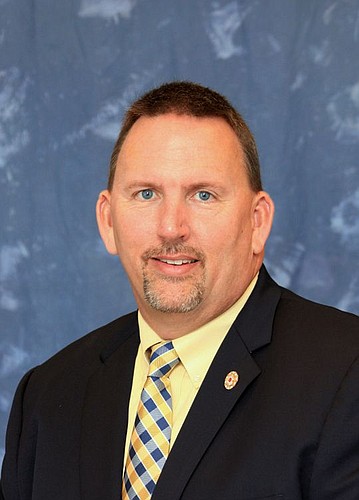
The initial week of collective bargaining saw Mayor Lenny Curry make offers to unions representing general employees, firefighters, police and corrections officers.
It was a first round of offers that included increases to long stagnant wages at the expense of new employees losing access to traditionally heralded pension plans. The city has to close at least one plan, according to state law, but Curry’s offers included closing all of them to new employees.
Yet, there are myriad issues that already have cropped up, beginning with the mere idea of doing away with those plans for public safety unions and even body cameras emerging as a topic.
“It’s problematic in a lot of areas,” said Steve Zona, head of the local Fraternal Order of Police, on the suggestion to close the plans to public safety personnel.
Randy Wyse, head of the local International Association of Firefighters chapter, used the same term when talking about moving new hires to a defined contribution — similar to 401(k) plans many have in the private sector. It would hurt recruitment and retention efforts, he said.
That shift will be a major discussion moving forward.
It also could be an issue on the general employees’ side.
“What’s going to attract people to the city of Jacksonville?” asked Ronnie Burris, business agent for the local Laborers’ International Union of North America chapter.
He represents sanitation, parks and public works employees who make up to about $35,000 a year. The tradeoff, he said, is employees knowing they were going to have a stable retirement.
“Now they’re not going to have that,” he said, if such plans are changed.
Burris has sat in on all the initial meetings between city and union officials.
Another issue he sees is the disparity of compensation being offered to general employees and public safety members.
Police, fire and corrections members have been offered one-time lump sum increases equal to 2 percent of their pay once deals are struck.
After that, they’re slated for 5 percent raises in 2017, 4 percent raises in 2018 and 3.5 percent raises in 2019.
Members of two general employees’ unions — Burris’ laborers and the local Communications Workers of America chapter — have been offered 1 percent one-time bonuses.
The other two, the Jacksonville Supervisors Association and the local American Federation of State County and Municipal Employees, were offered 2 percent.
Additionally, the wage bumps over the next three years for general employees would be 4 percent, 3 percent and 2 percent, respectively.
As for retirement plans for those new employees? Their city contribution tops out at 12 percent at 16 years of service and beyond. The offer for police and fire members tops out at 20 percent at years 21 and on. For corrections, it’s 18 percent.
“I don’t believe there should be one iota difference in the packages,” said Burris on the offers to all the unions.
He acknowledges there is a perception of public safety importance, but stresses it “takes a team” for anything in the city to happen.
“They’re going to be upset,” Burris said of his members’ reaction to the difference in packages, “but they figured that was going to happen … because everybody thinks police and fire get everything they want.”
All the unions are expected to offer counters in the next several weeks to Curry and his team. For Burris, he said it will be a counter with a focus on wages.
Although the city would like to keep talks on wages and pensions only, both public safety unions have other issues to bring up at the table.
For firefighters, Wyse said there are items like how leave issues and limited duty policies are handled.
For the police officers, there is a more well-known issue leadership would like to address.
“Body cameras,” said Zona.
He said he believes the city and union to hammer out a policy at the table while talking pension and wages. It’s an issue that has been brought up at bargaining tables across the country as the devices become more popular in law enforcement.
Zona wouldn’t go into detail about what could be sought.
In August, Sheriff Mike Williams told City Council that a pilot program for body cameras would rollout no later than spring and could be worn for up to six months as part of a trial.
The collection of camera-clad officers wouldn’t be in just high-crime areas, he said at the time.
@writerchapman
(904) 356-2466